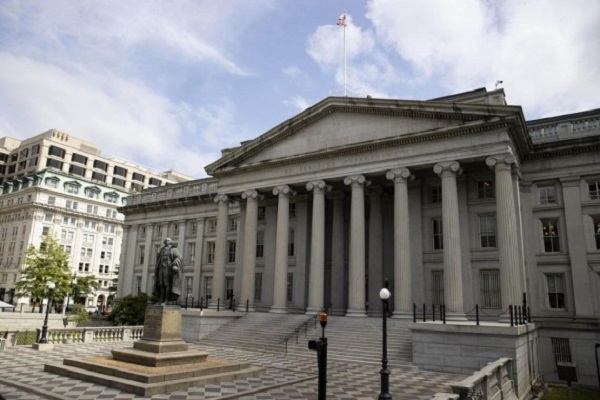Washington,(Samajweekly) The US Treasury Department has sanctioned members of a smuggling network that helps fund the Houthi militia in Yemen and Irans Islamic Revolutionary Guard Corps-Quds Force (IRGC-QF).
In a statement on Thursday, the Department said the network, led by Iran-based Houthi financier Sa’id al-Jamal, generates tens of millions of dollars in revenue from the sale of commodities, like Iranian petroleum, a significant portion of which is then directed through a complex network of intermediaries and exchange houses in multiple countries to the Houthis in Yemen.
“The revenue helps fund the destabilising regional activities of the Houthis, IRGC-QF, and others, including the Lebanon-based Hezbollah.”
Al-Jamal directs a network of front companies and vessels that smuggle Iranian fuel, petroleum products, and other commodities to customers throughout the Middle East, Africa and Asia, according to the Treasury.
Andrea M. Gacki, Director of the Department’s Office of Foreign Assets Control, said the smuggling network’s financial support enables the Houthis’ “deplorable attacks threatening civilian and critical infrastructure in Yemen and Saudi Arabia”.
“These attacks undermine efforts to bring the conflict to an end and, most tragically, starve tens of millions of innocent civilians.
“Ending the suffering of millions of Yemenis is of paramount concern to the US, and we will continue to hold accountable those responsible for widespread misery and deny them access to the global financial system,” she added.
The Department further said in the statement that since the onset of the conflict in Yemen, the “Houthis have relied on support from the IRGC-QF to wage their campaign against the internationally recognised Yemeni government and the Saudi-led coalition”.
The Treasury also claimed that Houthis have used ballistic missiles, explosives, naval mines and drone to strike military targets, population centres, infrastructure and commercial shipping in Saudi Arabia, along key international trade routes.
Yemen has been mired in a civil war since late 2014 when the Houthi rebels seized control of several northern provinces and forced the internationally recognised government of President Abd-Rabbu Mansour Hadi out of the capital Sanaa.
A recent UN-brokered negotiation between Yemen’s warring sides and other relevant parties has failed to produce any agreement of ceasefire.










